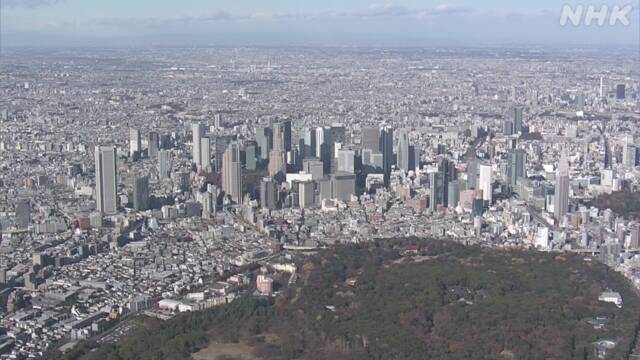Regarding the movement of the population of Tokyo, the number of “excessive in-migrants” who have continued to move in more than the number of out-migrants has decreased by more than 60% from the previous year to more than 30,000 in the last year.
Due to the spread of the new coronavirus infection, we have been "excessive out-migrants" for 6 consecutive months since July last year, so we found that the speed of concentration in Tokyo has slowed down.
The movement of the population of Tokyo, including foreigners, compiled by the Ministry of Internal Affairs and Communications based on the Basic Resident Register was "excessive migration", with the number of in-migrants exceeding the number of out-migrants by 31,125 in the last year.
Due to the spread of the new coronavirus infection, the number of "excessive in-migrants" has increased from the previous year to about 52,000, as the number of "excessive in-migrants" has increased for 6 consecutive months from July to December last year. It decreased by more than 60%, and the rate of decrease was the largest since 2014, which is comparable.
The number of over-migrants in Tokyo was about three times that of Kanagawa prefecture, which was second in the list, but the difference was reduced to more than 1,500.
Looking at the three major metropolitan areas, the number of "excessive migration" in the "Tokyo area" of Tokyo, Kanagawa, Saitama, and Chiba decreased by 50,000 from the previous year, but the number of migration still exceeds that of 99,243. I will.
On the other hand, in the "Nagoya area" of Aichi / Gifu / Mie, the number of "excessive out-migrants" was about 17,387, and in the "Osaka area" of Osaka / Hyogo / Kyoto / Nara, there were 118 "excessive out-migrants". I did.
In the "Tokyo area", more than half of the people who have moved out of Tokyo have moved to Kanagawa, Chiba, etc., so the Ministry of Internal Affairs and Communications said, "For convenience of commuting, there are people who only move within the Tokyo area. It seems that there are many. "
Expert "Is it difficult to reduce the concentration in Tokyo?"
Professor Emeritus Hiroo Ichikawa of Meiji University, who is the director of the Institute for Urban Strategies, a private think tank, said, "It can be said that the flow of concentration in Tokyo has stopped a little, but since the movement is mainly within the Tokyo area, I think that it will decrease dramatically. It's difficult. The new corona virus is likely to change people's way of thinking and behavior, so we are paying attention to how it will take root in the future. "
On the other hand, regarding the migration from Tokyo to rural areas, he points out that "there is another issue of whether the rural areas will be accepted, and unless the mismatch of mutual ideas is resolved, population flow to rural areas will not occur." ..

